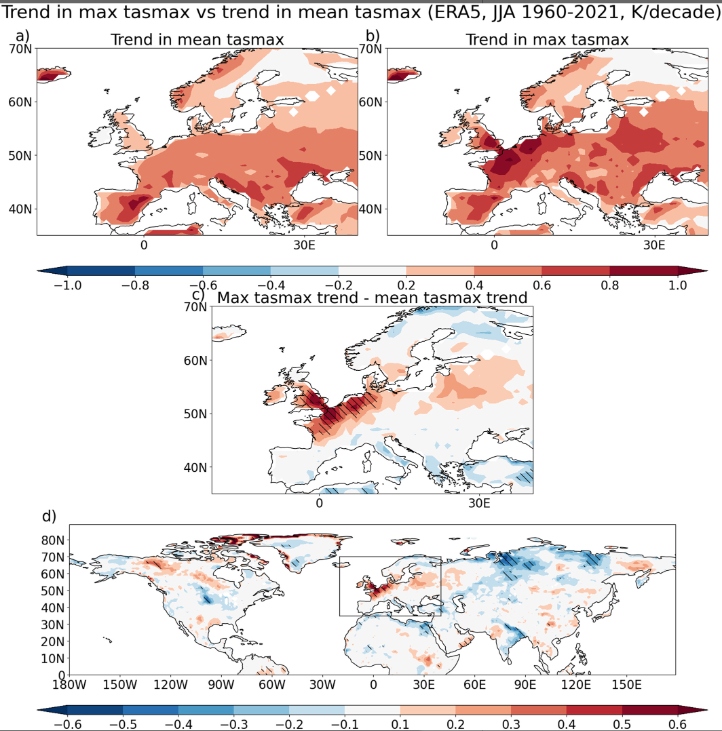University of Oxford research reveals that the hottest days in North-West Europe are warming twice as fast as average summer days due to climate change
According to research led by the University of Oxford, climate change means that the hottest days of the year are set to warm at double the rate.
This trend is most prominent in England, Wales and Northern France.
In fact, extreme heat events, like the UK’s record-breaking heatwave last summer, will become more frequent.
Climate models are able to predict the rate of warming for average days accurately, but they underestimate the warming of the hottest days compared to actual observations.
Understanding the warming rate of the hottest days is crucial for climate model simulation
Dr Patterson comments, “Understanding the warming rate of the hottest days will be important if we are to improve climate model simulation of extreme events and make accurate predictions about the future intensity of such events.
“If our models underestimate the rise in extreme temperatures over the coming decades, we will underestimate the impacts this will have.”

The University of Oxford analysed 60 years of data
Researchers analysed 60 years of data in order to get an in-depth understanding of North-Western Europe’s climate change.
Shocked by what they saw, the study leaders are calling for urgent action.
They demand that governments adopt infrastructure and health systems to cope with higher temperatures.
It is possible that the sudden warming of the hottest days is linked to hot air transported north from Spain.
Why is it so shocking that the hottest days are only set to get warmer?
The study leaders highlight the importance of accurately simulating extreme events now and in the future so that we can work to mitigate their impact on the environment.
Extreme heat negatively affects:
- Energy
- Transport
- Agriculture
- Health
Policymakers must address these vulnerabilities promptly to protect the planet.











